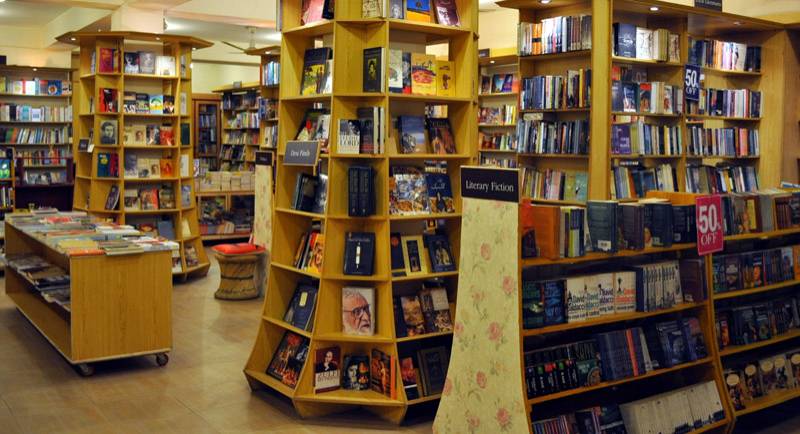
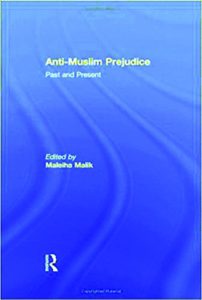
Anti-Muslim Prejudice: Past and Present
Maleiha Malik
Routledge (2010)
Rs12,292
This collection makes a unique contribution to the study of anti-Muslim prejudice by placing the issue in both its past and present context. The essays cover historical and contemporary subjects from the eleventh century to the present day. They examine the forms that anti-Muslim prejudice takes, the historical influences on these forms, and how they relate to other forms of prejudice such as racism, anti-semitism or sexism, and indeed how anti-Muslim prejudice becomes institutionalized.
This volume looks at anti-Muslim prejudice from a wide range of disciplinary perspectives, including politics, sociology, philosophy, history, international relations, law, cultural studies and comparative literature. The essays contribute to our understanding of the different levels at which anti-Muslim prejudice emerges and operates - the local, the national and the transnational – by also including case studies from a range of contexts including Britain, Europe and the US.
This book contributes to a deeper understanding of contemporary political problems and controversial topics, such as issues that focus on Muslim women: the ‘headscarf’ debates, honour killings and forced marriages. There is also analysis of media bias in the representation of Muslims and Islam, and other urgent social and political issues such as the social exclusion of European Muslims and the political mobilisation against Islam by far-right parties.
This book was published as a special issue of Patterns of Prejudice.
Maleiha Malik is Reader in Law at the School of Law, King’s College, University of London.
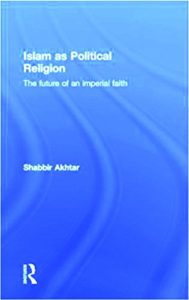
Islam as Political Religion: The Future of an Imperial Faith
Shabbir Akhtar
Routledge (2010)
Rs13,829
This comprehensive survey of contemporary Islam provides a philosophical and theological approach to the issues faced by Muslims and the question of global secularisation. Engaging with critics of modern Islam, Shabbir Akhtar sets out an agenda of what his religion is and could be as a political entity.
Exploring the views and arguments of philosophical, religious and political thinkers, the author covers a raft of issues faced by Muslims in an increasingly secular society. Chapters are devoted to the Holy Qur’an and Islamic literature; the history of Islam; Sharia law; political Islam; Islamic ethics; and political Islam’s evolving relationship with the West. Recommending changes which enable Muslims to move from their imperial past to a modest role in the power structures of today’s society, Akhtar offers a detailed assessment of the limitations and possibilities of Islam in the modern world.
Providing a vision for an empowered yet rational Islam that distances itself from both Islamist factions and Western secularism, this book is an essential read for students and scholars of Islamic studies, religion, philosophy and politics.
Shabbir Akhtar is Associate Professor of Philosophy and Religious Studies at Old Dominion University, USA. This political work is a sequel to his philosophical treatise The Quran and the Secular Mind (Routledge, 2007). He has written a number of articles and books on philosophy of religion, Christianity and Islam, and is currently working on a book on Islamic humanism.
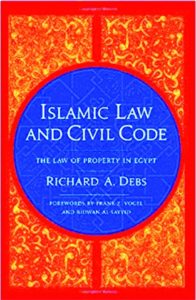
Islamic Law and Civil Code: The Law of Property in Egypt
Richard A. Debs
Columbia University Press (2010)
Rs8,097
Richard A. Debs analyzes the classical Islamic law of property based on the Shari’ah, traces its historic development in Egypt, and describes its integration as a source of law within the modern format of a civil code. He focuses specifically on Egypt, a country in the Islamic world that drew upon its society’s own vigorous legal system as it formed its modern laws. He also touches on issues that are common to all such societies that have adopted, either by choice or by necessity, Western legal systems.
Egypt’s unique synthesis of Western and traditional elements is the outcome of an effort to respond to national goals and requirements. Its traditional law, the Shari’ah, is the fundamental law of all Islamic societies, and Debs’s analysis of Egypt’s experience demonstrates how Islamic jurisprudence can be sophisticated, coherent, rational, and effective, developed over centuries to serve the needs of societies that flourished under the rule of law.
Dr. Debs graduated summa cum laude from Colgate University. He holds an MA and PhD from Princeton, where he was a Ford Foundation Fellow. He was a Fulbright Scholar in Egypt, where he subsequently held a joint Harvard-Princeton research fellowship on Islamic law. He also has an LlB from Harvard Law School, and an Honorary Doctorate from American University of Beirut.
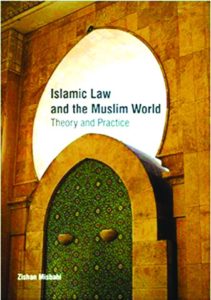
Islamic Law And The Muslim World: Theory And Practice
Zishan Misbahi
Koros Press (2014)
Rs16,902
This book deals with the theory and practice of Islamic law in both the formative classic and modern periods and over a range of societies. In addition to exploring the tension between theory and practice, the book focuses on the role of ijtihad in both Sunni and Shi’i fiqh and in collections of fatwa, and looks at the relationship between judicial practice and positive law.
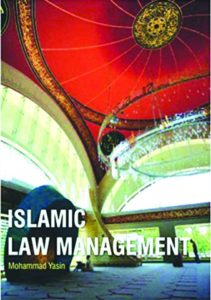
Islamic Law Management
Mohammad Yasin
Koros Press (2014), Rs16,902
Islam is a perfect code of conduct, based on science and logic. The Islamic legal system is based on the Holy Quran and Holy Tradition. Islamic Law is known as Shariah also. Shariah has certain laws, which are regarded as divinely ordained, concrete and timeless for all relevant situations. Islamic Law is now the most widely used religious law, and one of the three most common legal systems of the world, alongside common law and civil law. This book deals with the management of Islamic laws and also helpful for professionals and researchers.
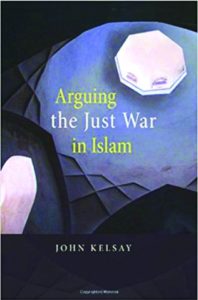
Arguing the just war in Islam
John Kelsay
Harvard University Press (2009), Rs3,108
Jihad, with its many terrifying associations, is a term widely used today, though its meaning is poorly grasped. Few people understand the circumstances requiring a jihad, or “holy” war, or how Islamic militants justify their violent actions within the framework of the religious tradition of Islam. How Islam, with more than one billion followers, interprets jihad and establishes its precepts has become a critical issue for both the Muslim and the non-Muslim world.
John Kelsay’s timely and important work focuses on jihad of the sword in Islamic thought, history, and culture. Making use of original sources, Kelsay delves into the tradition of the Shari’a — Islamic jurisprudence and reasoning — and shows how it defines jihad as the Islamic analogue of the Western “just” war. He traces the arguments of thinkers over the centuries who have debated the legitimacy of war through appeals to shari’a reasoning. He brings us up to the present and demonstrates how contemporary Muslims across the political spectrum continue this quest for a realistic ethics of war within the Islamic tradition.
Arguing the Just War in Islam provides a systematic account of how Islam’s central texts interpret jihad, guiding us through the historical precedents and Qur’anic sources upon which today’s claims to doctrinal truth and legitimate authority are made. In illuminating the broad spectrum of Islam’s moral considerations of the just war, Kelsay helps Muslims and non-Muslims alike make sense of the possibilities for future war and peace.
John Kelsay is distinguished research professor and Richard l. Rubenstein professor of religion at Florida State University.
What Islam Did for Us: Understanding Islam’s Contribution to Western Civilization
Tim Wallace-Murphy
Watkins (1994), Rs708
In these troubled times, when Islam is under seemingly perpetual attack, it is imperative to consider how much the West owes to the religion’s spiritual insights. Bestselling author Tim Wallace-Murphy presents the first major popular book to examine the common roots of Judaism, Christianity, and Islam and to reveal Islam’s immense contributions to our society, which included laying the foundations for our systems of education, astronomy, mathematics, and architecture. He also illustrates how the European Western powers helped foment the current crisis in the Middle East, and why we must strive for a just, equitable solution to these problems. Understanding can begin with this compelling acknowledgment of our shared spiritual heritage, including religious tolerance, respect for learning, and the concepts of chivalry and brotherhood.
Tim Wallace-Murphy is an author, lecturer and historian. He has written several bestsellers, including Cracking the Symbol Code, The Mark of the Beast (with Trevor Ravenscroft), Rex Dues: The True Mystery of Rennes le Chateau, and Rosslyn: Guardian of the Secrets of the holy Grail (with Marilyn Hopkins) which provided invaluable source material to Dan Brown for his bestselling novel, The Da Vinci Code.

